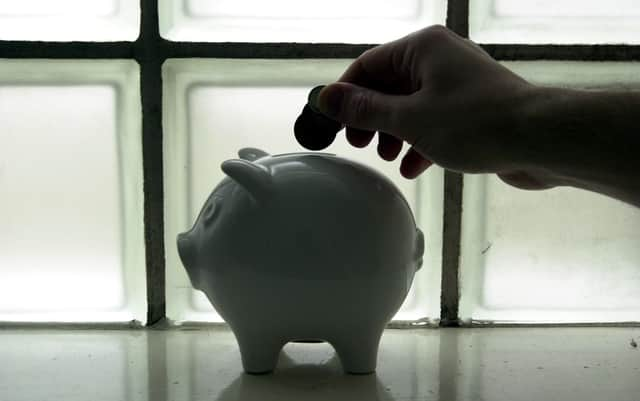Martin Lewis: Got a cash Isa? You should probably ditch it!


Everything changed though in 2016, when the Personal Savings Allowance (PSA) launched. It means:
Basic rate taxpayers can earn up to £1,000 interest a year from any and all savings without paying any tax on it; after that their interest is taxed at 20 per cent.Higher rate taxpayers can earn up to £500 a year; after that their interest is taxed at 40 per cent.Top rate taxpayers don’t get a PSA – all their interest is taxed at 45 per cent.
Advertisement
Hide AdAdvertisement
Hide AdThis is a huge amount of tax-free interest for most. Even at today's stand-out top easy-access 1.5 per cent rate from app-only bank www.chase.co.uk, you'd need nearly seventy grand saved to generate £1,000 interest. Which is why the vast majority of people – over 19 in 20 – don't pay tax on savings interest anymore.
All a cash ISA is, is a savings account you don't pay tax on.
These days, the cash ISA’s main boon is that interest from it doesn't count towards the PSA: it’s still tax-free on top of that. That means for the few with savings (or earnings) big enough to break that limit, it's a winner, as they can protect more interest from tax.
You get a £20,000 ISA allowance each tax year, and, crucially, money you put into an ISA stays tax-free year after year.
Yet for MOST, there's no benefit of saving in a cash ISA – so you simply should focus on getting the highest interest rate. Over the last few years, cash ISAs have tended to have WORSE rates than normal savings across all categories. At the time of writing…
Top easy access: Cash ISA 1.05 per cent v Normal Savings 1.5 per cent Top 1-year fix: Cash ISA 1.4 per cent v Normal Savings 1.96 per cent Top 2-year fix: Cash ISA 1.75 per cent v Normal Savings 2.21 per cent
Yet rates change daily so for my latest updated best buys see www.moneysavingexpert.com/topsavings and www.moneysavingexpert.com/cashisa.
So most should DITCH cash ISAs for accounts that pay more.
When I polled this on Twitter recently (@MartinSLewis), I found 85 per cent of the 9,000 who said they had cash ISAs don't pay tax on savings.
Advertisement
Hide AdAdvertisement
Hide AdSo why keep them? I know for years many had it drilled into them (often by me) that cash ISAs were nicer – but now people need deprogramming and pushed to just focus on the highest interest rates which come from top normal savings. Be brave, ditch the cash ISA and earn more.
However, there are a few niche reasons you may want to keep a cash ISA…
If you're close to paying tax on savings. If you've a good whack of savings and are close to the limit where you’ll pay tax, as interest rates are likely to rise, keeping money in cash ISAs now can protect you from future tax. You can withdraw from fixed cash ISAs (unlike normal fixes). There are big interest penalties for doing so but, if you could get a good cash ISA fix rate and wanted access in an emergency, they are more flexible.
While cash ISAs aren't much cop for most, other ISAs can be.
If you're a first-time buyer aged 18-39, check out the Lifetime ISA. You can save up to £4,000 a year in it, and once it has been open a year, when used towards a qualifying first home (one costing up to £450,000) you get an unbeatable 25 per cent boost on top. That means there’s up to £1,000 a year of free cash. There are cons as well as pros though, so it’s worth reading my full guide at www.moneysavingexpert.com/LISAs.
And if you're looking to invest, a stocks and shares ISA does have actual tax benefits for many, unlike cash ISAs.
Claiming universal credit or working tax credits – get a 50 per cent boost.
While not an ISA, just a quick final mention for the Help to Save scheme. This is designed to let those on low incomes save up to £50 a month, with a stonking 50 per cent bonus paid after two years.
Advertisement
Hide AdAdvertisement
Hide AdCrucially, the bonus is based on the highest amount you had in the account over that time – so imagine you put in £50 a month for ten months, had £500 in there, but needed to withdraw it, then couldn’t afford to put any more in. That’s all fine and you’d still get a £250 bonus at the end (50 per cent of the max £500 you had in). For full eligibility criteria and to open the account go to www.gov.uk/get-help-savings-low-income.
Martin Lewis is the Founder and Chair of MoneySavingExpert.com. To join the 7.5 million people who get his free Money Tips weekly email, go to www.moneysavingexpert.com/latesttip
Comments
Want to join the conversation? Please or to comment on this article.